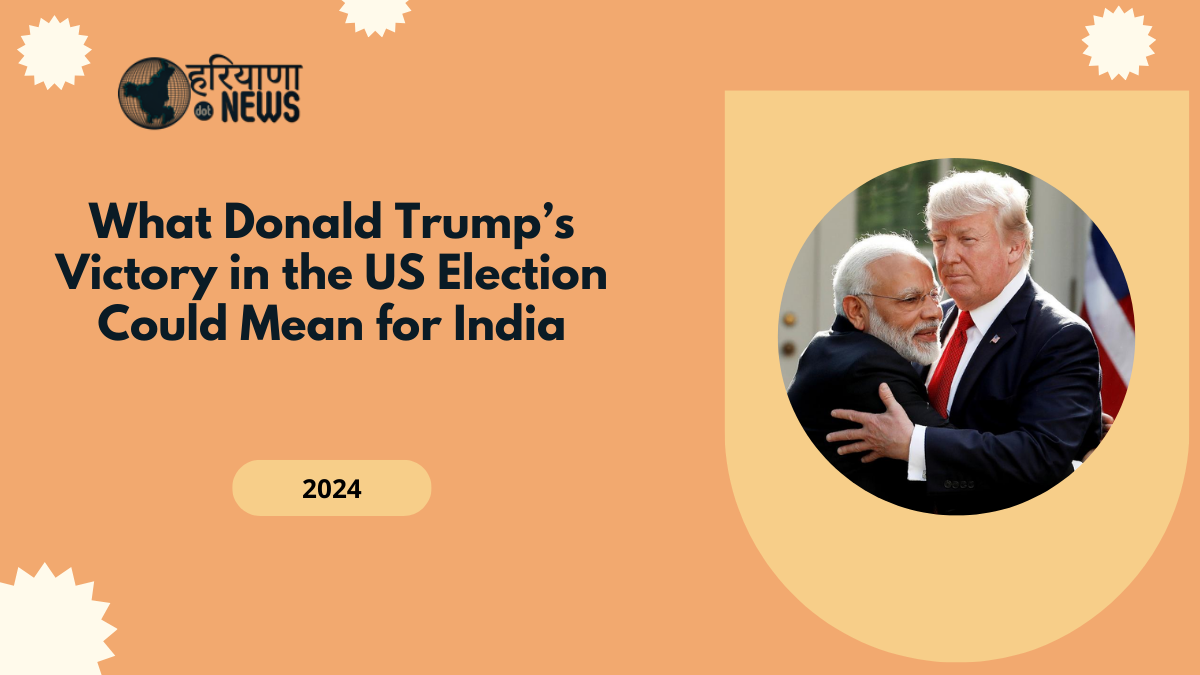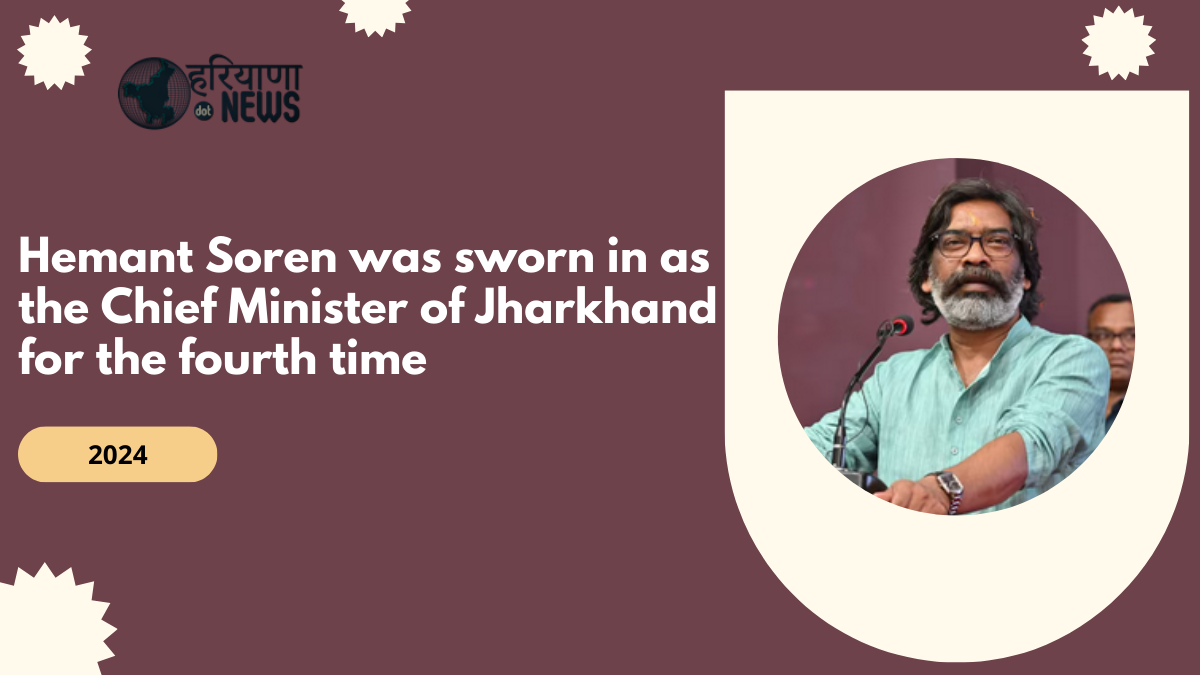If Donald Trump wins the 2024 U.S. presidential election, his approach to foreign policy—particularly concerning trade, immigration, defence, and geopolitical matters in South Asia—could significantly influence India’s economy and security framework.
Commitment to Enhancing US-India Relations
In the days leading up to the election, Trump emphasized his commitment to deepening the “great partnership” between the United States and India. Trump has frequently expressed admiration for Indian Prime Minister Narendra Modi, calling him a “good friend.” In a message celebrating Diwali on the social media platform X, Trump restated his intent to strengthen U.S.-India relations if he assumes the presidency.
Additionally, Trump denounced recent violent acts targeting Hindus and other minority groups in Bangladesh, highlighting the increased geopolitical sensitivity in the region. These comments come amid reports that former Bangladeshi Prime Minister Sheikh Hasina, now ousted from power, has sought refuge in India.
Strategic Outreach to the Indian-American Community
Trump’s engagement with Indian-Americans highlights his close ties with Modi, which were prominently displayed at events like the 2019 “Howdy, Modi!” rally in Texas. At this event, Trump welcomed Modi before a crowd of approximately 50,000 people, showcasing their partnership. In 2020, Modi hosted Trump in Gujarat at the world’s largest cricket stadium, with over 120,000 people in attendance.
These high-profile events underscore not just their personal connection but also their shared nationalist visions. Modi’s “India First” policy aligns closely with Trump’s “America First” approach, both emphasizing domestic economic growth, self-reliance, and national security.
Possible Effects on Economic and Trade Relations
A Trump administration would likely prioritize American interests, which could lead to renewed trade negotiations with India. Trump may pressure India to lower trade barriers, impacting sectors like IT, pharmaceuticals, and textiles that heavily export to the U.S. Potential new tariffs could challenge these industries.
Although Trump has previously criticized India’s tariff practices, he has simultaneously shown respect for Modi, referring to him as a “fantastic man.” During a recent Michigan town hall, Trump remarked, “India is very tough… Brazil is very tough… China is the toughest, but we were managing China with tariffs.”
However, Trump’s aim to reduce U.S. reliance on China might open doors for India. Should Trump encourage American companies to relocate operations away from China, India could be an appealing alternative, offering a chance for increased U.S. investment and collaboration that might enhance India’s economic standing.
 Mumbai Police Detain Woman for Threatening Call on Prime Minister Modi’s Life
Mumbai Police Detain Woman for Threatening Call on Prime Minister Modi’s Life
 Hemant Soren was sworn in as the Chief Minister of Jharkhand for the fourth time, took oath as Jharkhand’s 14th chief minister
Hemant Soren was sworn in as the Chief Minister of Jharkhand for the fourth time, took oath as Jharkhand’s 14th chief minister
 India’s Strategic Breakthrough: Advancing SLBM Capabilities with INS Arighaat
India’s Strategic Breakthrough: Advancing SLBM Capabilities with INS Arighaat
 Chinmoy Das Arrest: High Court Petition Seeks Ban on ISKCON Amid Rising Violence Against Hindus in Bangladesh
Chinmoy Das Arrest: High Court Petition Seeks Ban on ISKCON Amid Rising Violence Against Hindus in Bangladesh
 Bangladesh Police Use Tear Gas and Batons Against Hindu Protesters After Chinmoy Das’ Arrest
Bangladesh Police Use Tear Gas and Batons Against Hindu Protesters After Chinmoy Das’ Arrest





Strengthening Defense and Security Partnerships
Trump’s assertive stance on China aligns with India’s security priorities, potentially fostering deeper U.S.-India defence collaboration. Under Trump’s leadership, military cooperation could increase with more extensive joint exercises, arms transactions, and technology sharing. His previous administration worked to strengthen the Quad—a strategic alliance involving the U.S., India, Japan, and Australia—aiming to counter China’s influence in the Indo-Pacific. Enhanced defence ties could help India bolster its military in response to ongoing border disputes with China and Pakistan.
Immigration and H-1B Visa Policies
Trump’s restrictive immigration policies, especially regarding the H-1B visa program, had a notable impact on Indian professionals working in the U.S. A renewed focus on limiting immigration could pose challenges for skilled Indian workers seeking U.S. employment, especially in tech industries that rely heavily on Indian talent. More stringent immigration rules might prompt Indian tech firms to expand domestically or explore new international opportunities, potentially reducing their U.S.-based workforce.
Influence on South Asian Geopolitical Dynamics
Trump’s foreign policy could also shape India’s influence in South Asia. While he has shown a willingness to cooperate with Pakistan, he has called for more robust anti-terrorism measures, which align with India’s security concerns. Trump’s “Peace through strength” strategy could encourage a more assertive U.S. stance against extremism and terrorism, which would support India’s regional stability goals.
Conclusion: Balancing Challenges and Opportunities
A Trump presidency could bring both hurdles and prospects for India. Although stricter trade and immigration policies may present challenges, Trump’s positions on defence, anti-terrorism, and reducing dependency on China could align with India’s strategic goals, paving the way for a strengthened U.S.-India partnership.
Click here to know more.






